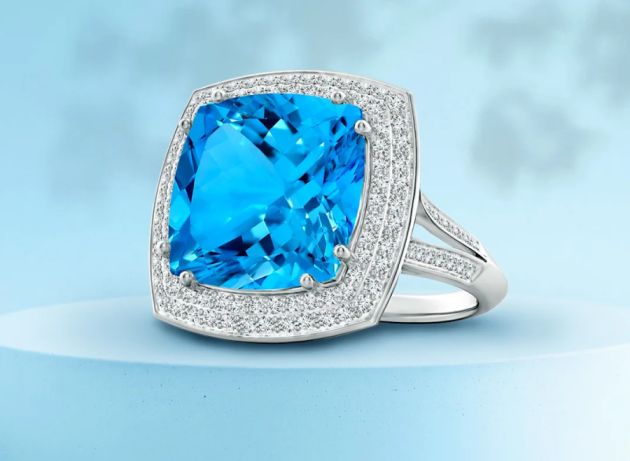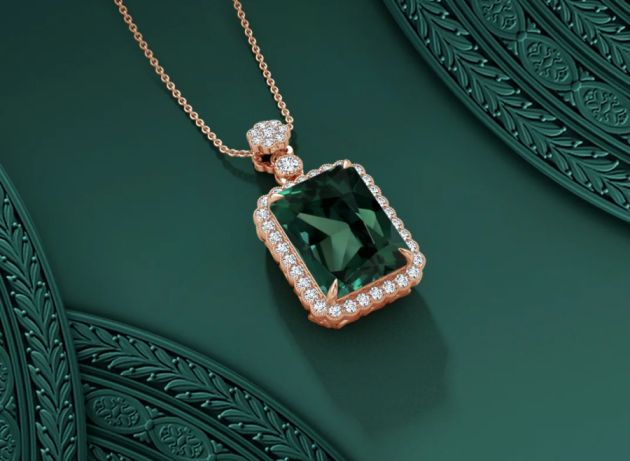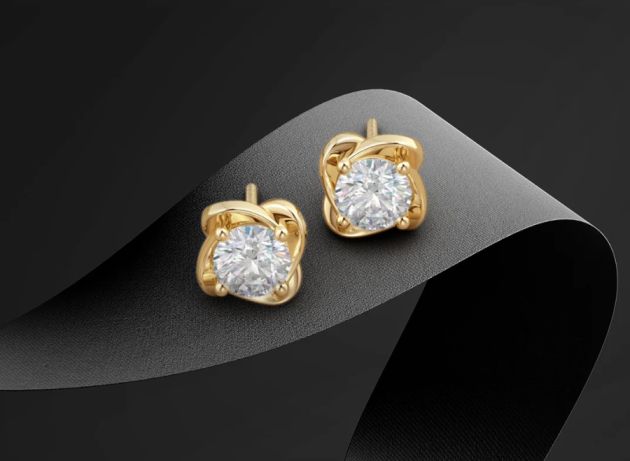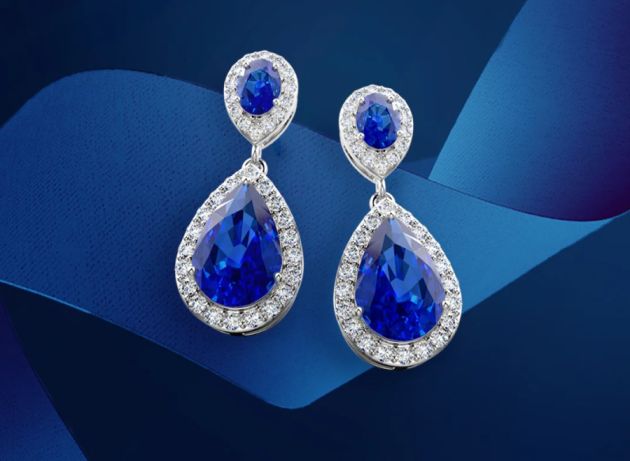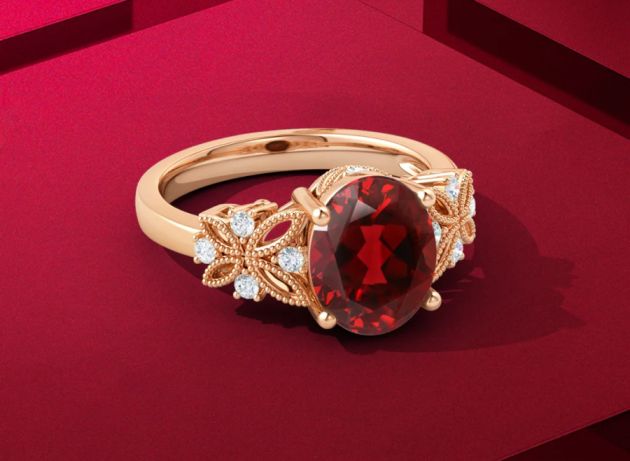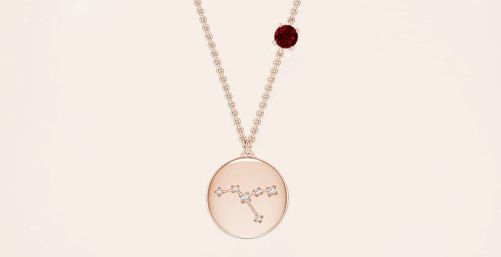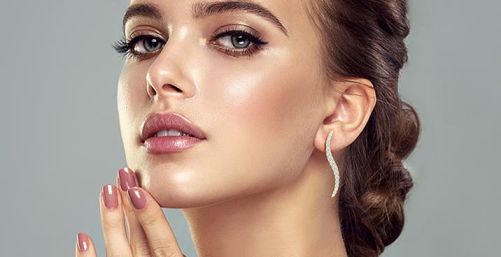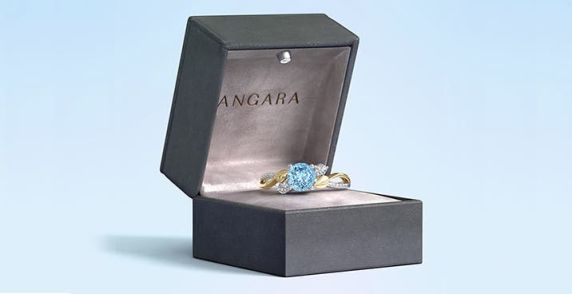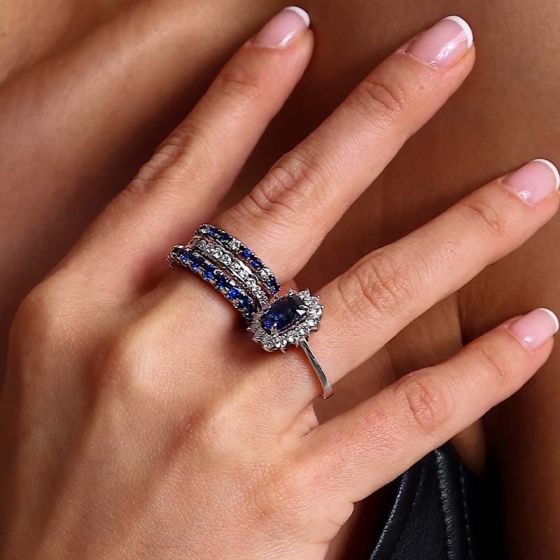Jewellery has been a part of human culture for centuries, serving as a symbol of status, love and personal expression. And while choosing the right gemstone is undoubtedly important when buying jewellery, the jewellery setting in which it is placed can significantly impact the overall look and feel of a piece.
Intrigued and want to know all about the different types of jewellery settings along with what sets one apart from the other? Grab a comfy chair and read on.
Types of Jewellery Mountings and Settings
1. Pavé Setting
Quick question: Have you ever walked on a sidewalk paved with identically sized stones and thought to yourself, “Wow, this looks seamless!” ‘Cause if so, we bet you’d love the pavé setting!
The word pavé has been derived from the French word meaning ‘pavement.’ This This setting for jewellery features identically-sized gemstones set close together with the help of small metal beads in a continuous line to create a look that resembles a path. The secret sauce here is the minimal use of metal, which allows for maximum sparkle.
Considering the same, it’s probably no surprise that this mounting is one of the most popular wedding band and engagement ring settings out there. After all, what better way to declare your love than with a path of shining gems that light up your way to eternity?
2. Channel Setting

Speaking of romantic jewellery, one of the most popular wedding ring settings out there is the channel setting. (Though let’s be honest, this setting looks spectacular on any jewellery piece.)
Here, the metal features a groove that holds a row of similarly sized stones between two parallel bars. The beauty of this setting for stones lies in the fact that the gems are nestled snugly against each other, without the intrusion of metal bars between each stone. It’s like a sweet, never-ending hug for your valuable gems.
Did You Know?
Channel is one of the most secure gemstone jewellery settings because it protects the gemstone’s girdle from chipping. So not only does it look great, but also ensures your gems stay in pristine condition.
Also Read: Channel Setting: Everything You Need To Know
3. Prong Setting

One of the most commonly used jewellery setting (especially earring setting) choices out there, the prong setting consists of metal prongs or claws that stick out from a basket-like base to cradle the gemstone.
What’s more, the number of prongs can vary from 3 to 4 to 6 and it all depends on the piece’s style, gemstone security and design. For solitaire rings, for example, jewellers usually opt for 4 to 6 prongs. These prongs are shaped and bent over the stone’s crown, holding it securely while allowing light to dance around and enhance its brilliance and sparkle.
But that’s not all, the prong setting not only makes your gemstone appear more visible but also simplifies the process of cleaning your jewellery. Now, that’s what we call a win-win in our books.
4. Bezel Setting
If there’s one pendant setting (or jewellery setting, in general) that we love to see time and time again, it’s undoubtedly the bezel setting.
This classic technique has been around for centuries and it’s no wonder why – It’s like a protective cocoon, keeping your precious gems safe from bumps and scratches.
But don’t think this jewellery stone setting is boring – In fact, it comes in two variations to keep things interesting, i.e., the full bezel and partial bezel or semi-bezel.
The full bezel is like a full-body hug, an elevated collar of metal wrapping completely around the gemstone. The partial bezel, on the other hand, is like a friendly pat on the back, leaving part of the gem exposed for extra sparkle.
Also Read: Bezel Setting: Everything You Need To Know
Which one would you choose?
5. Clustre Setting
In terms of jewellery trend, this type of setting has been in and out of the public’s eye for decades. As indicated by its name, this setting involves placing multiple gemstones close together in order to give the appearance of a larger gem when viewed from a short distance.
Interestingly, the clustre setting is typically used to set coloured gemstones and can often be found in nature-inspired designs featuring flowers and butterflies. So, if you’re a big fan of nature-inspired pieces, you know which type of jewellery gem setting to pick!
6. Tension Setting

Ever wondered what it would be like to wear a gemstone that looked like it was floating mid-air? That’s the magic of the tension setting.
This modern ring setting uses specially crafted grooves and pressure to hold the gemstone securely, creating the illusion that it’s hovering between two pieces of metal.
It’s best suited for hard gemstones like diamonds, sapphires and rubies, which can withstand pressure.
7. Bar Setting

Picture a gemstone nestled comfortably between two cushions of metal – that’s the bar setting in all its simplicity. This setting uses two vertical bars to secure the gemstone, while also allowing light to enter and enhance its shine.
Bar setting is often used for rings , creating a clean and modern look. It’s also a great choice for people who prefer a more understated style, where the gemstone takes centre stage.
So, there you have it, the unique world of different jewellery settings. The next time you admire your favourite jewellery pieces, take a moment to appreciate the unsung hero holding those gemstones in place. Whether it’s the sparkling pavé setting on your ring or the shine-enhancing prong setting for stud earrings, each setting adds its own unique charm to your piece, making it all the more special. After all, it’s the little things that make your jewellery truly shine!
FAQ
How do you choose a jewellery setting?
There are several factors to consider when choosing a jewellery setting. These factors include the type of jewellery, the gemstone used, the security of the setting itself and the overall aesthetic of the piece.
How many types of settings are there in jewellery?
While the answer to this question varies depending on who you ask, we believe that there are seven basic types of settings with multiple variations.
What is a jewellery setting?
A jewellery setting is essentially a mechanism through which a gemstone is secured in place with the help of precious metal.
